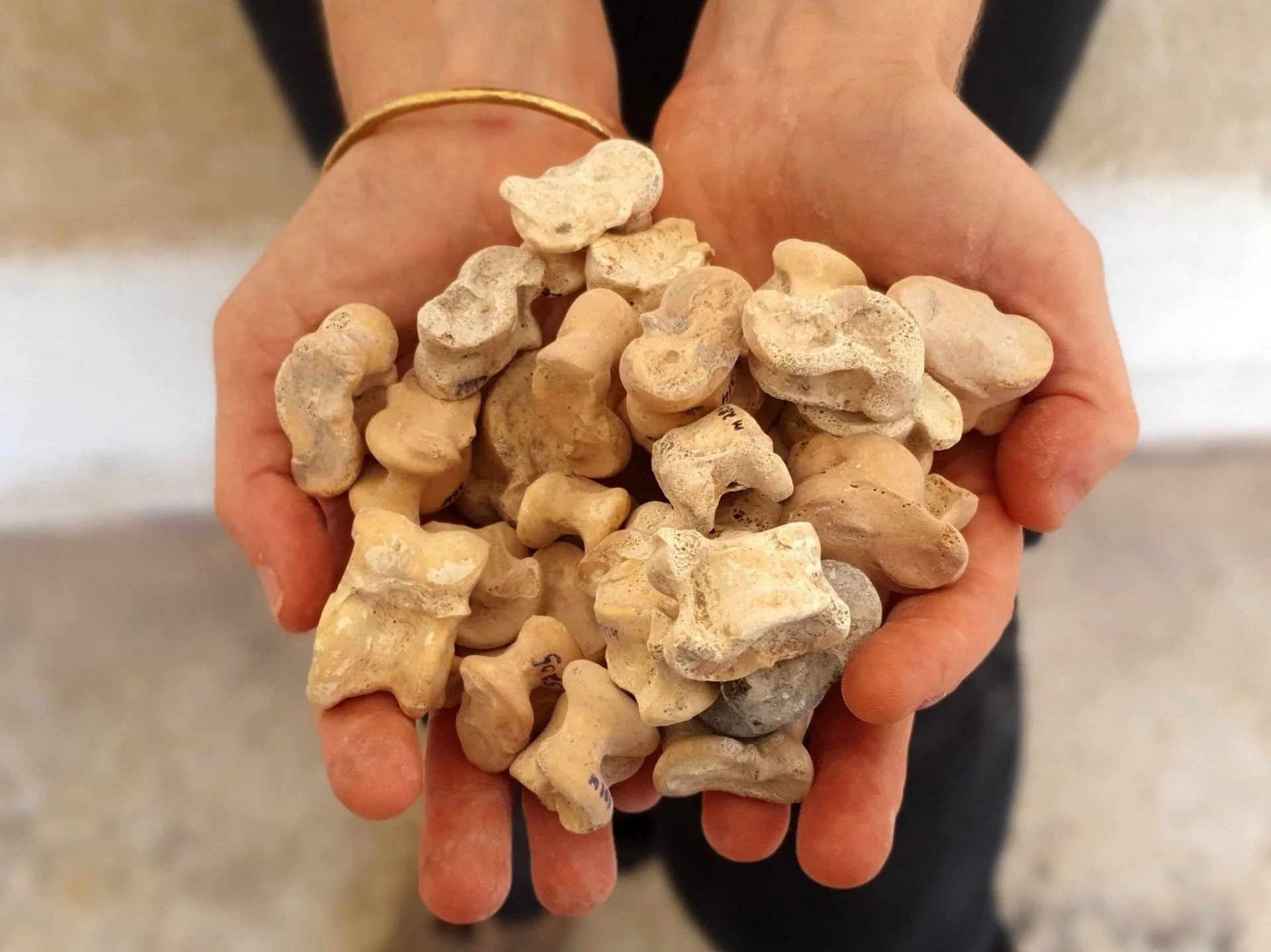Archaeologists have uncovered an ancient game made from bones in the Maresha-Bet Guvrin National Park, location in the Judean Shefelah, Israel.
Known as astragaloi, the practise of astragalomancy was a game of chance or divination played in antiquity by the Greeks and Romans, with some examples from the Etruscans and near Eastern civilisations.
The gaming pieces used ankle or hock bones from animals such as goat or sheep, although imitations have previously been found in bronze or wood.
Astragalomancy was performed in Ancient Greece through the rolling of astragaloi and subsequent consultation of “dice oracles”. To obtain an oracle, either five astragaloi were rolled at once, or one astragalos (also called astragali) was rolled five consecutive times.
Researchers from the University of Haifa, under the direction of Dr Ian Stern, found a collection of astragalos from the Hellenistic period during excavations whilst excavations in the Maresha-Bet Guvrin National Park.
The pieces date from around 2300 years ago and have inscriptions of Greek gods and goddesses, such as: Aphrodite (goddess of sexual love and beauty), Eros (god of love and sex), Hermes (herald of the gods), Hera (goddess of marriage, women and family, and the protector of women in childbirth), and Nike (winged goddess of victory). Some of the pieces also have inscriptions such as: “Robber”, “Stop, and “You are burnt” engraved.
According to Dr. Lee Perry-Gal, Israel Antiquities Authority zooarchaeologist and research fellow in the University of Haifa: “The large assemblage of astragaloi from Maresha is unique in quantity and quality, as well as in the many inscriptions. The assemblage reveals that, as today, people in distress sought external help in divination and spells and in the world beyond. Women and men struggled with an uncertain environment of health, childbirth, and death, and aimed to protect themselves with the help of magic.”
Header Image Credit : Israel Antiquities Authority





